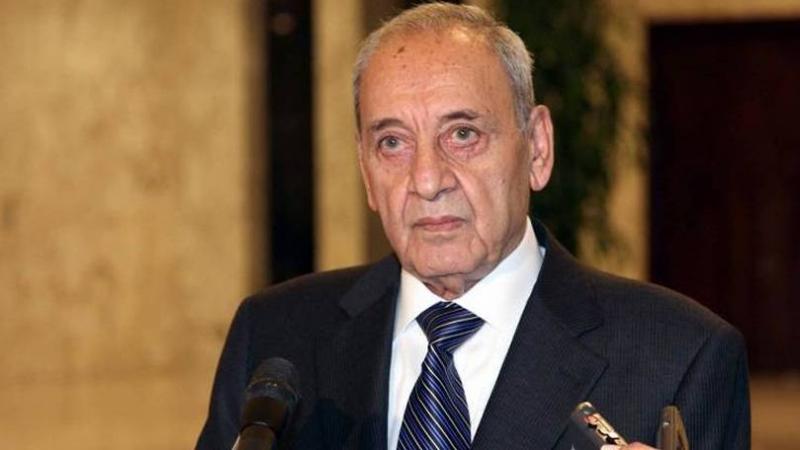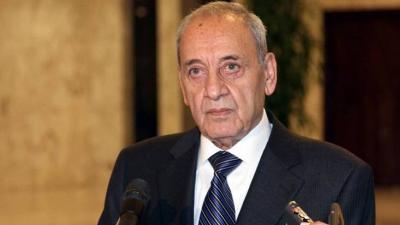Unless a miracle happens, the scheduled session of the Lebanese Parliament today to elect a new president will be another "failed attempt" to complete the election process, just as the Parliament is about to enter a state of "permanent session," as stipulated by the Lebanese Constitution in the last ten days before President Michel Aoun’s term ends. This is happening amidst unsuccessful efforts to agree on a presidential candidate and the absence of an effective political majority in Parliament to elect a president who needs 65 votes, not to mention the two-thirds majority needed to hold the session.
Comments from Parliament Speaker Nabih Berri, as he stated to "Asharq Al-Awsat" before the session, suggest a deadlock. He noted that the "block," as he put it, still exists, and efforts to reach a consensus candidate for president are "stalled." For Berri, the permanent session does not translate into opening Parliament for MPs and does not prevent granting confidence to any government that might be formed. "I have done my duty and called the council to elect, and I intend to call for close sessions if today’s session fails."
Berri reiterates the characteristics he wants in the upcoming president, which he describes as "simple and clear, yet essential"; he wants "a president who unites rather than divides, has Islamic and Christian backing, is open to the Arab world, and most importantly, protects the (Taif Agreement)," which he refers to as "the Constitution of Lebanon that has not been implemented."
In a clearer indication of the lack of prospects for electing a president, Hezbollah appeared eager for the formation of a new government to inherit the anticipated "constitutional vacuum" with President Aoun's departure from the presidential palace at the end of his term on midnight October 31. Sources close to the negotiations told "Asharq Al-Awsat" that the party is exerting pressure on designated Prime Minister Najib Mikati and Head of the Free Patriotic Movement, Gibran Bassil, to form a government before the end of Aoun’s term.
The sources indicated that both Aoun and Bassil wanted to retain the current government while replacing all Christian ministers affiliated with the president, but Mikati rejected this idea. The outcome seems to be the replacement of three Christian ministers in exchange for the three Muslim ministers that Mikati intends to change.
The sources confirmed that unless the unexpected occurs, the government is expected to be formed between the 26th and 27th of this month, with a confidence vote likely to occur after Aoun's term has ended, and "he will not preside over the first government meeting," contrary to usual practice. A meeting took place yesterday between Bassil, General Director of General Security Major General Abbas Ibrahim (who is mediating among the political leaders to form the government), and the head of Hezbollah's liaison and coordination unit, Wafiq Safa, at the headquarters of the Strong Lebanon Bloc, addressing efforts to form a government before President Aoun’s term concludes.
According to sources close to Bassil, President Aoun "will not accept anything less than the replacement of three ministers" and will also not agree to the replacement of the current Minister of Energy Walid Fayad, who does not have a good relationship with Mikati. It is reported that the ministers expected to be replaced include Foreign Minister Abdullah Bou Habib, Minister of State for Administrative Development Najla Riachi, and Tourism Minister Walid Nassar.
The sources placed the ball in Mikati's court: "Will he accept that Aoun's term ends without a government? Is he convinced that the bloc will allow him to govern with a resigned government that takes on presidential powers?" They concluded that it is clear to "the bloc" that "Mikati will not be able to do that, and the Christian ministers in the resigned government cannot remain if that happens, given what this means for the absence of legal representation of the sects in his government."




